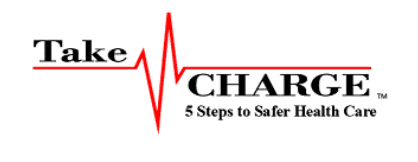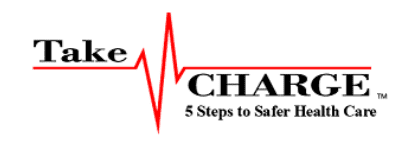Step 5 Use an Advocate, Be an Advocate for Others
Use an Advocate, Be an Advocate for Others
Tips for the Advocate When Talking to the Doctor
(or another clinician)
Ask the patient if you may ask a question (the patient is in charge). When you do, this gives the patient time to think of more questions.
Be sure to repeat back to the doctor what was said, in words you and the patient understand. Don’t just ask the patient “yes or no” questions such as “do you understand?” Instead ask, “Tell me what you heard the doctor say.” Or you can say to the doctor "May we tell you what we heard you say?"
Think of the conversation as a recipe for a cake. If you are missing information or ingredients, the information won't be complete and the cake won't come out the way you planned. Writing down information to be shared is like writing a recipe. It must be complete and accurate to be useful.
Ask the patient if you should ask staff to wash their hands. If the patient wants you to, be sure to be polite and let staff members know that you “are sure they did already but . . .” you would like to see them wash before touching the patient. (Use patient’s name.) The Centers for Disease Control (CDC) reports 90,000 people die from hospital-acquired infections each year.
Ask the doctor what time he/she does rounds after surgery. They may come before visiting hours. If you leave and miss a meeting with the doctor, ask for a phone call if you are the patient’s primary advocate. (Family member, close friend or caregiver). Be sure you have the patient's permission.
Never say "I need" always say "the patient needs", such as: “the patient needs to know when she is going home” or “the patient needs to know when the doctor will be here.”
Encourage the patient to know the three questions from Ask Me 3: What is my main problem? What do I need to do? Why is it important for me to do that?
Encourage the patient to share concerns. Do not talk about the patient without the patient being involved. Ask the patient if you could share information. "May I tell the doctor you don't like taking that medication?"
At Discharge:
Upon discharge from a hospital or following a procedure, especially if the patient underwent anesthesia, be sure to know how to reach the doctor (or someone covering for the doctor) with more questions*, such as:
What side effects or symptoms should be expected?
What if symptoms come back or get worse?
What is the actual diagnosis and the prognosis
Make sure you (and the patient) understand medications and any prescriptions.
Medications may be called "pain medication" at discharge. Ask if this is an opioid and addictive
Note the names and phone numbers of doctors or specialists and any other people involved in the discharge.
These tips come from the Pulse Family-Centered Patient Advocacy Training Patient Advocate Support
* Be sure the patient has given you permission to ask questions and to be that involved in their care.





